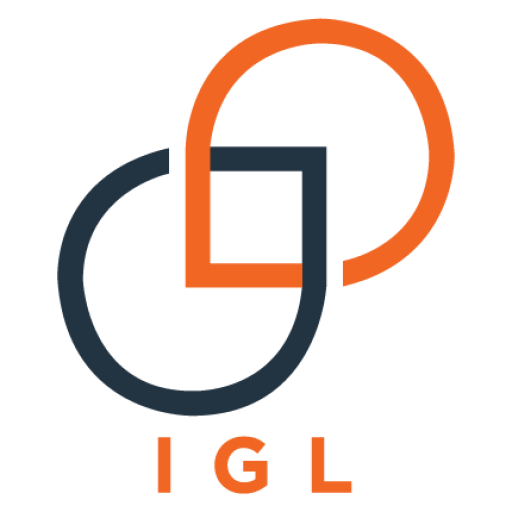
The Growing Influence of International Educational Consultants
September 5, 2025
German Language Verb Conjugations at the Intermediate Level
September 13, 2025Mastering German Language grammar is essential for intermediate learners who want to advance confidently toward fluency. For those working with an International Educational Consultant, understanding core grammar concepts helps maximize study abroad success and effective language use. This knowledge is vital not only for language acquisition but also for academic and immigration processes that students often face.
Why Grammar Matters in Learning German
At the intermediate stage, learners often face challenges such as complex sentence structures, verb tenses, and case usage. Grammar serves as the backbone of the language and is necessary for clear and accurate communication. It is especially important when consulting study abroad consultants or immigration consultants, as proficiency in German grammar can impact visa applications and academic performance abroad. This blog covers essential grammar topics every intermediate learner should know to stay ahead in their German studies.
German Sentence Structure
The Verb-Second (V2) Rule in Main Clauses
In German main clauses, the verb almost always occupies the second position. This rule is fundamental to forming correct sentences. For example, Ich lerne Deutsch (I am learning German language). When there is an introductory adverb or phrase, it occupies the first position, pushing the subject after the verb: Morgen lerne ich Deutsch (Tomorrow I learn German). Mastering this rule helps construct natural-sounding sentences crucial for daily communication and academic settings.
Word Order in Subordinate Clauses
Subordinate clauses follow a different pattern, where the verb moves to the end of the sentence: …, weil ich Deutsch lerne (because I am learning German language). Recognizing this difference is vital for understanding complex sentences and reading German texts with ease. Errors in word order are common pitfalls for intermediate learners.
Common Sentence Structure Mistakes
New learners often mistakenly apply English sentence order to German, causing confusion or miscommunication. For instance, saying Ich mag nicht weil es regnet instead of Ich mag es nicht, weil es regnet leads to errors that can be avoided with practice and awareness.
Mastering the Four Cases
Nominative, Accusative, Dative, and Genitive Explained
The four cases in German language define how nouns and pronouns relate to verbs and other words. The nominative marks the subject, the accusative the direct object, the dative the indirect object, and the genitive indicates possession. For example: Der Hund (nominative) beißt den Mann (accusative).
Prepositions That Trigger Specific Cases
Some prepositions always require certain cases, like mit (with) demanding dative, or für (for) taking accusative. Learning these triggers helps avoid common mistakes and enhances language accuracy useful for formal communications via a visa consultant or immigration consultant.
Practical Examples for Everyday Use
Understanding cases enables learners to express complex ideas correctly. For example, Ich gebe dem Freund das Buch (I give the book to the friend) uses the dative case for dem Freund.
German Verb Tenses Beyond the Present
Using Perfekt vs. Präteritum (Past Tenses)
In spoken German, Perfekt, the present perfect, is commonly used: Ich habe gelernt (I have learned). The Präteritum (simple past) is more often found in writing and storytelling: Ich lernte (I learned).
When to Use Futur I (Future Tense)
Futur I expresses plans or predictions: Ich werde morgen lernen (I will study tomorrow). This tense is essential when discussing future intentions, especially important for study visa consultants advising students.
Examples of Each Tense in Context
Using a variety of tenses allows learners to talk about events spanning past, present, and future, which improves communication precision.
Modal Verbs and Their Uses
Core Modal Verbs in German
Modal verbs like können (can), müssen (must), and dürfen (may) alter the meaning of the main verb and express abilities, possibilities, permissions, or obligations.
Shifting Meanings Based on Context
Depending on context, modal verbs can change nuance, such as Ich muss gehen (I must go) indicating obligation, or Ich kann schwimmen (I can swim) showing ability.
Combining Modal Verbs with Other Tenses
Modal verbs can combine with past or future tenses, e.g., Ich konnte (could) expresses past ability.
Adjective Endings and Declensions
Why Adjective Endings Change
Adjective endings reflect the gender, case, and number of the noun they describe, changing depending on preceding articles or the absence of articles.
Strong, Weak, and Mixed Declensions Explained
Strong declensions occur without definite articles, weak with definite articles, and mixed when preceded by indefinite articles.
Quick Reference Chart with Examples
A concise chart simplifies understanding and applying adjective endings, vital for writing essays or emails when dealing with study abroad consultants in Karachi.
Separable and Inseparable Verbs
Rules for Separable Verbs in Sentences
Separable prefixes split from the base verb in main clauses and move to the end, for example, Ich stehe früh auf (I get up early).
Common Inseparable Prefixes to Learn
Prefixes such as be-, ver-, and ent- do not separate and alter the meaning of verbs, e.g., verstehen (to understand).
Examples Showing the Difference
Recognizing these differences helps express nuanced meanings and construct accurate sentences.
Relative Clauses for Complex Sentences
Introduction to Relative Pronouns
Relative pronouns like der, die, and das introduce additional descriptive information about a noun.
Building Longer Sentences with Relative Clauses
Using relative clauses enables learners to combine ideas naturally, e.g., Das Buch, das ich lese, ist spannend (The book that I am reading is exciting).
Practical Examples for Learners
Mastery of relative clauses improves comprehension and expressive abilities, essential for academic writing and conversations.
Subjunctive Mood (Konjunktiv I & II)
Why the Subjunctive Mood Matters?
The subjunctive mood expresses wishes, hypothetical scenarios, or reported speech.
Everyday Uses of Konjunktiv II
Commonly used in polite requests or to describe unreal situations, as in Ich würde gern kommen (I would like to come).
Quick Overview of Konjunktiv I for Reported Speech
Generally found in formal or journalistic German, used mostly for indirect speech.
Word Formation and Compound Nouns
Understanding German Word Building
German often creates new words by combining multiple terms, sometimes resulting in long compound nouns.
Common Prefixes and Suffixes
Recognizing these parts helps deconstruct and understand complex vocabulary.
Tips for Decoding Long Compound Words
Breaking down words into meaningful parts aids comprehension and vocabulary expansion.
Common Mistakes to Avoid
Translation Errors from English
Literal translations often lead to grammatical errors, so learning to think in German syntax is crucial.
Confusing Case Endings
Mixing up case endings is a frequent mistake that disrupts sentence clarity.
Overusing Present Tense
Using only the present tense when other tenses are more appropriate hinders precise expression.
Tips for Practicing German Language Grammar
Writing and Journaling in German
Regular writing exercises reinforce grammar patterns and vocabulary.
Doing Targeted Grammar Exercises
Practice focusing on weak areas, such as case endings or verb tenses.
Immersing Through German Media and Conversations
Watching German films, listening to music, or practicing conversations boosts fluency and deepens understanding.
Conclusion
Intermediate German learners face exciting challenges in mastering grammar. From sentence structure to verb tenses and cases, building these skills is essential for clear communication and academic success. Whether searching for an International Educational Consultant, solid grammar skills support your journey abroad effectively.
For personalized German language training and expert guidance to succeed abroad, trust IGL German Language Institute. Start practicing consistently today and move one step closer to fluency and your study abroad dreams with IGL.




